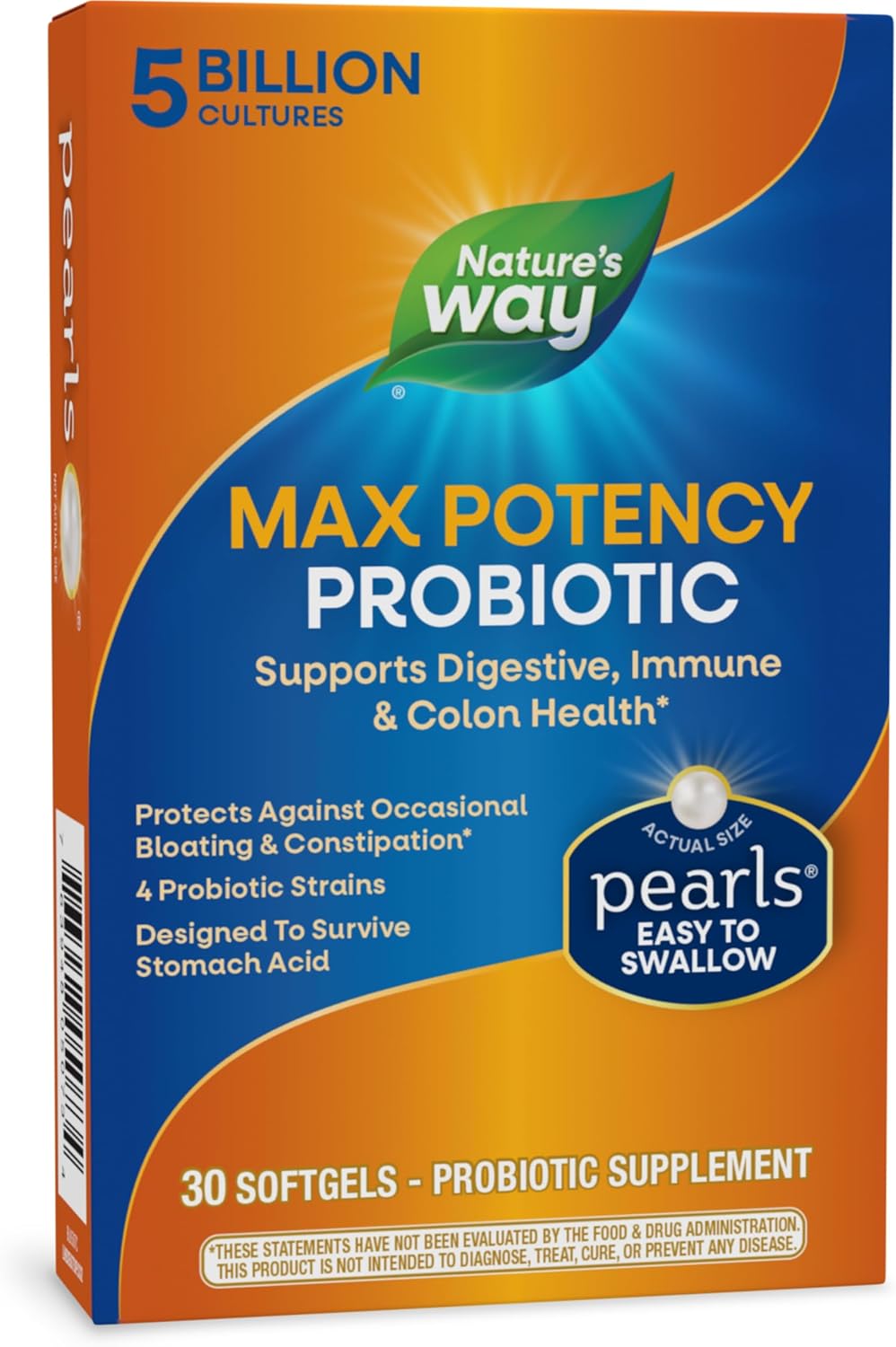










Price: $24.49 - $8.88
(as of Apr 10, 2025 12:52:16 UTC - Details)
What’s the Best Probiotic to Take? A Comprehensive Guide
Introduction
In today's fast-paced world, maintaining gut health is more important than ever. With the rise of processed foods and stress, many people are turning to probiotics to help support their digestive systems. But with so many options available, you might be wondering: what’s the best probiotic to take? This article will explore various aspects of probiotics, including their benefits, types, and how to choose the right one for you. We’ll dive into long-tail keywords to give you practical information that can help you make an informed decision.
Understanding Probiotics
What Are Probiotics?
Probiotics are live microorganisms that provide health benefits when consumed in adequate amounts. They are often referred to as "good" or "friendly" bacteria. These beneficial bacteria help balance the gut microbiome, which can influence everything from digestion to immune function.
The Benefits of Taking Probiotics
When searching for what’s the best probiotic to take, it’s essential to understand the benefits. Probiotics can help with:
- Improving digestion
- Reducing symptoms of irritable bowel syndrome (IBS)
- Enhancing immune function
- Preventing diarrhea, especially after antibiotics
- Supporting mental health by influencing the gut-brain axis
Different Types of Probiotics
Probiotics come in various strains, and each has unique benefits. Here are some popular strains you might encounter:
- Lactobacillus: Often found in yogurt, this strain can help with lactose digestion and overall gut health.
- Bifidobacterium: Common in the intestines, it can aid digestion and bolster the immune system.
- Saccharomyces boulardii: A beneficial yeast that helps prevent diarrhea and restore gut flora.
Understanding these strains can help you identify which probiotic might be the best fit for your needs.
Choosing the Right Probiotic
Factors to Consider
When deciding on what’s the best probiotic to take, several factors come into play:
- Strain Specificity: Different strains serve different purposes. Make sure to choose a probiotic that targets your specific health concerns.
- CFU Count: CFU stands for colony-forming units, and it indicates the number of live bacteria in a probiotic. A higher CFU count doesn’t always mean better; it depends on the strain and your health goals.
- Form: Probiotics come in various forms, including capsules, powders, and fermented foods. Choose one that fits your lifestyle.
Reading Labels
Understanding how to read probiotic labels is crucial. Look for:
- Expiration Dates: Ensure the product is fresh for optimal effectiveness.
- Storage Requirements: Some probiotics need refrigeration, while others can be stored at room temperature.
- Ingredients: Avoid products with unnecessary additives or fillers.
Best Probiotics for Specific Needs
Probiotics for Digestive Health
If your primary concern is digestive health, look for a probiotic that includes Lactobacillus and Bifidobacterium strains. These can help alleviate bloating and promote regularity.
Probiotics for Immune Support
For immune support, consider a multi-strain probiotic that includes Lactobacillus rhamnosus and Bifidobacterium lactis. These strains are known for enhancing the body’s immune response.
Probiotics for Mental Health
Recent studies suggest a connection between gut health and mental well-being. If you're interested in this area, look for probiotics that include Bifidobacterium longum and Lactobacillus helveticus, which may help improve mood and reduce anxiety.
Probiotics for Women’s Health
Women may benefit from specific probiotics that support vaginal and urinary health. Look for products containing Lactobacillus reuteri and Lactobacillus rhamnosus.
Incorporating Probiotics into Your Routine
Dietary Sources of Probiotics
In addition to supplements, you can incorporate probiotics through your diet. Foods rich in probiotics include:
- Yogurt
- Kefir
- Sauerkraut
- Kimchi
- Miso
- Tempeh
Adding these foods to your meals can enhance your gut health naturally.
Timing and Dosage
When taking a probiotic supplement, consider the timing. Some studies suggest taking probiotics on an empty stomach may enhance absorption. However, follow the dosage recommendations on the label or consult with a healthcare professional for personalized advice.
Potential Side Effects
While probiotics are generally safe for most people, some might experience mild side effects, such as:
- Gas and bloating
- Digestive discomfort
- Changes in bowel movements
These symptoms often subside as your body adjusts. If they persist, consult with a healthcare provider.
Conclusion
In summary, finding what’s the best probiotic to take involves understanding your individual health needs, the different strains available, and how to incorporate them into your daily routine. Probiotics can play a vital role in improving gut health, supporting the immune system, and even enhancing mental well-being. Always consider factors like strain specificity, CFU count, and product quality when making your selection. With this knowledge, you can make an informed choice that best suits your health journey. Remember, a healthy gut is key to overall well-being!
Nature's Way Max Potency Probiotic Pearls contains 4 strains and 5 billion cultures in a convenient, once-daily softgel that's small and easy to swallow. This daily probiotic formula supports digestive, immune, and colon health.*
Taking Max Potency Probiotic Pearls helps protect against occasional digestive discomfort, bloating, and constipation.*
Adults take 1 softgel daily. Small probiotic pearls are easy to swallow and conveniently sized to take anywhere and everywhere, with no refrigeration required.
Contains no salt, wheat, or artificial colors. Contains soy, milk, and fish (Tilapia).
At Nature’s Way, we believe nature is the ultimate problem solver. For over 50 years, we have looked to the natural world for inspiration. Our quality vitamins and supplements are formulated to help you find your way to wellness.
